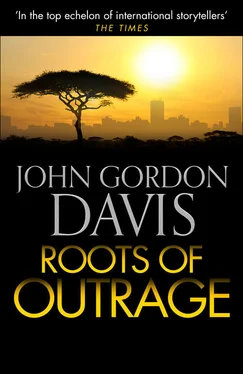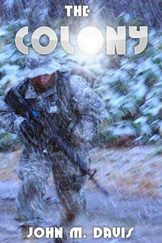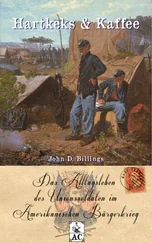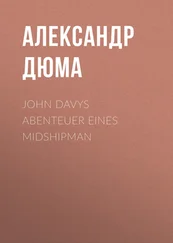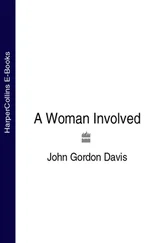Two weeks later Justin Nkomo came to work for Drum , on probation. Mahoney was delighted to see him again but he soon concluded that Justin was not going to fit in: he was too serious and bookish. Sure, he drank, but not enough. He wrote good prose, but not flip enough. He wanted to enjoy life but he was not flash enough for Soweto. Sure, he loved women but he was not hip enough. ‘Our intellectual’ they called him at Drum.
It was a month after his arrival that Drum staged their debut of Our Black Springbok. Justin had been sufficiently tested at nets to convince the publisher he was on to a winner of a story. Now he persuaded the Witwatersrand University first cricket team to turn out, and the first baseball team, he invited the sportswriters of the daily newspapers to come along, and several members of the British and United States consulates in the hopes that Justin might be offered a scholarship.
‘I hope to God he doesn’t let us down after all this.’
Mahoney was worried too – this had been his idea. Please God … he prayed as Justin walked out onto the university cricket pitch.
It was not, of course, to be a cricket match: it was an exhibition, and a wager. The publisher had offered five hundred rands to the university cricket club if Justin failed to score a century. And what an exhibition of slugging it was! The university team were astounded – and so were the sportswriters.
‘They did not know what hit them,’ the Star reported. ‘There at the crease stood this gangly young black man, holding his bat like a caveman’s club, smashing the university’s best bowlers to all corners of the field as if swatting flies. Having reached his century in record time – thus winning the wager for his sponsor, Drum – the batsman, armed now with a baseball bat, repeated the same phenomenon against the best pitchers of the university’s baseball club. The man is a genius with a bat: he has little style but who needs that with an eye and brawn like his? It would be foolish to tamper with such unorthodox brilliance. If there were no apartheid in this sports-mad land of ours he would, without a doubt, be a Springbok cricketer in a year or two, if not immediately. There is every chance that if he and Drum play their cards right, this man Justin Nkomo will be offered a sports scholarship to an overseas university. Indeed, the United States cultural attaché, watching wide-eyed, told me that he was certain that an American university would snap him up. South Africa will be the loser. What a sporting tragedy …’
Three months later Justin Nkomo accepted a scholarship to the University of Miami. Many years were to pass before he returned.
In those days Mahoney shared a big, seedy, four-bedroom apartment with three other bachelors: Shortarse Longbottom, a tall, thin, mournful young reporter on the Star , Hugo Wessels, known as Huge Vessel because of his capacity for beer, who was a young reporter on an Afrikaans newspaper, and Splinter Woodcock, a law student who was justifiably pleased with his genital endowments. The apartment was on the top floor of an old apartment block in Hillbrow, on the edge of downtown Johannesburg, one of the most densely populated areas of the world. By day the area teemed with blacks, employees of the shops and restaurants and cheap hotels, and servants who worked in the cheap apartments, but at night they all disappeared back to the townships beyond the horizon.
Most of the apartment blocks had servants’ rooms on the very top but ‘locations in the sky’ were discouraged under apartheid. There were servants’ rooms on Mahoney’s rooftop and it was a term of the lease that they should not be occupied, but Mahoney had purloined a key and he went up there to work when the partying got too hectic downstairs. They called the apartment The Parsonage because there was a substantial turnover of young ladies at breakfast all weekend. The parties were fine with Mahoney, because he had most mornings free, but the weekend was an important time for him to study, at least during daylight, though it was great to know the party was going strong downstairs whenever he was ready to join it.
The Parsonage piss-ups began on Friday afternoons in the staff canteen of the Star , where the junior reporters of Johannesburg’s various newspapers gathered to solve the problems of the world and flirt with the female junior reporters, including Gloria Naidoo, who wrote for the fashion page, and Wendy Chiang, who wrote for the book page, and Innocentia Molo, who wrote for the Sowetan. This multi-racial gathering was not illegal, but to adjourn together across the road to the Press Bar of the Elizabeth Hotel was illegal because of the Group Areas Act and the Liquor Act. Miss Chiang, Miss Naidoo and Miss Molo were not allowed to darken its white doors, so the party usually graduated back to The Parsonage. And this, strictly speaking, wasn’t illegal either: people of different races were not actually forbidden to meet in private homes provided there was no question of contravention of the Immorality Act, the Prohibition of Mixed Marriages Act, the Prohibition of Political Interference Act, the Influx of Unwanted Persons Act, the Criminal Law Amendment Act, which authorized a policeman to detain you for twelve days without trial, the Suppression of Communism Act, the Seditious Publications Act … It wasn’t actually illegal – not yet – but Sergeant van Rensburg and his squad were very optimistically suspicious about The Parsonage. Out there in Soweto there was murder going on, but there was Sergeant van Rensburg cruising Hillbrow trying to get evidence of the English press contravening the Immorality Act with Miss Chiang, Miss Naidoo and Miss Molo. As it happened, neither Shortarse, Huge, Splinter nor Mahoney were screwing Gloria – who had the reputation of preferring ladies – Wendy or Innocentia, though not for want of trying. The three women usually left The Parsonage together in Wendy’s car – she did not drink – to go home over the horizon where they belonged, but they took great delight in reeling out of the building blowing kisses up to the boys in the hope that Sergeant van Rensburg was watching through his binoculars.
It was on one of these Friday piss-ups, the week after Justin Nkomo left for America, that Gloria Naidoo said to Mahoney: ‘You remember Patti Gandhi?’
‘How could any man forget?’
‘Well she’s a friend of mine, and she’d like to talk to you – she likes the sympathetic way you wrote up her trial. I’m sure you wouldn’t mind her calling you? She’ll use a public phone in case her line’s being tapped. I gave her the number of the Star canteen, she’ll phone here next Friday in case your number is being tapped too. Okay?’
Was it okay?
‘Of course I remember you,’ he said when she telephoned. ‘And I thought you were very clever. You should be a lawyer.’
‘Flattery will get you everywhere. So, I have a business proposition to put to you.’
Flattery would get him everywhere?
‘Is this a story?’
‘That’s your business, isn’t it? There are no other grounds upon which we can legally meet, are there?’
‘Where do you suggest?’
‘Well, there’s no bar we can legally meet in. Not even a park bench, like they do in the movies. So would you come to my shop? Where my workers will ensure the bed temperature remains normal?’
Perish the thought … !
Gandhi Emporium was in the Indian quarter in Diagonal Street. The streets were teeming with people and traffic at five o’clock, blacks hurrying home from work to the locations. The shop was closing up as Mahoney walked in. An Indian salesgirl led him through to the workshop, where a dozen black tailors were shutting down their sewing machines. They entered the office beyond. Patti Gandhi was descending a staircase, her hand extended. She was even more beautiful than he remembered. She wore a lime-green silk dress that flared over her breasts revealing a breathtaking cleavage.
Читать дальше
